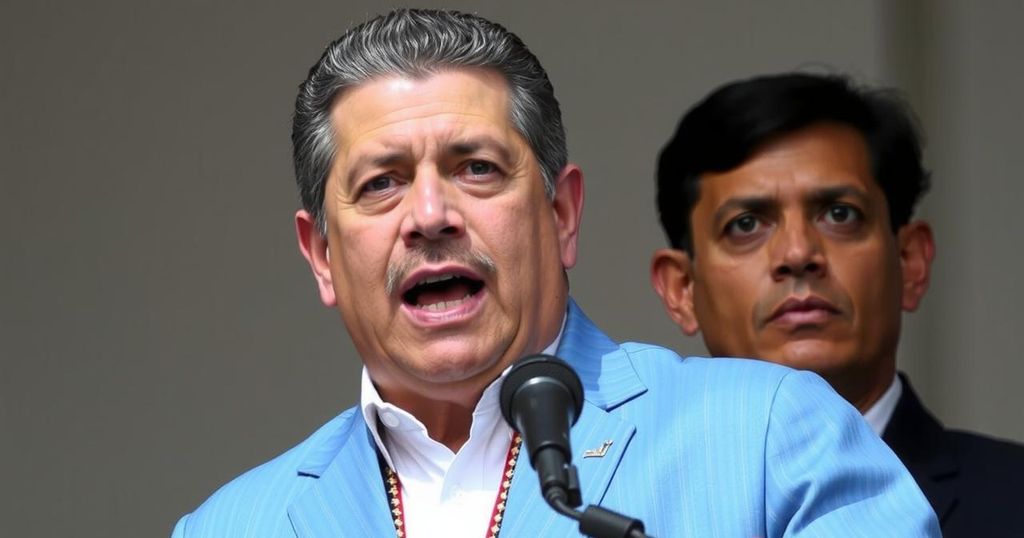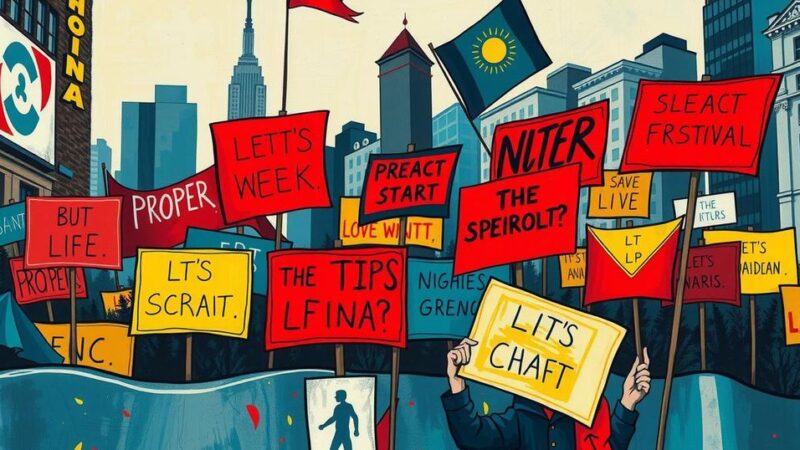Nicolás Maduro began his third presidential term in Venezuela, amid allegations of electoral fraud and lack of proof of victory. Despite this, he faces significant opposition from González, who is recognized by several nations as the legitimate president-elect. The recent election has been condemned as a severe compromise of democratic integrity, raising alarms about governance in the region.
On January 6, Nicolás Maduro commenced his third term as President of Venezuela, a position he occupies amidst allegations of electoral fraud. This marks another instance of his governance being contested, as numerous reports and evidence suggest that his opponent, González, likely secured a significant victory. Observers have characterized this election as the most egregious instance of electoral manipulation in recent Latin American history, raising substantial concerns about democracy in the region.
The American administration and other nations have acknowledged González as the legitimate president-elect. Despite threats from Maduro’s regime aimed at detaining him, González’s determination to return to Venezuela illustrates the ongoing struggle within the opposition to reclaim democratic rights. Concurrently, Maduro fortified his power by restricting border access, and only a few regional allies attended his inauguration.
While prior U.S. administrations have imposed heavy sanctions to pressure Maduro’s regime, shifting strategies under the Biden administration attempted to negotiate a pathway to free elections, ultimately unsuccessful. The opposition, however, succeeded in rallying substantial public support behind González after evidence indicated he far surpassed Maduro in the vote tally. Thus, Maduro’s renewed presidency raises critical questions about governance and legitimacy in Venezuela as global leaders reassess their positions.
Venezuela has been in political turmoil for years, with Nicolás Maduro facing accusations of authoritarianism and election fraud. His claimed victories have been widely considered illegitimate, prompting international scrutiny and recognition of opposition leaders as the rightful representatives of the Venezuelan people. The situation has strained diplomatic relations and raised significant concerns regarding the health of democracy in Latin America. The recent election cycle intensified these tensions, particularly amidst accusations that Maduro thwarted legitimate electoral processes.
In conclusion, Nicolás Maduro’s inauguration amid allegations of electoral fraud highlights persistent issues surrounding democracy in Venezuela. With significant opposition support rallying behind González, the tensions between Maduro’s regime and international recognition of his opponent continue to challenge the legitimacy of governance in the country. The situation poses critical implications for future diplomatic relations and the role of global leaders in seeking resolutions to the Venezuelan crisis.
Original Source: www.washingtonpost.com






